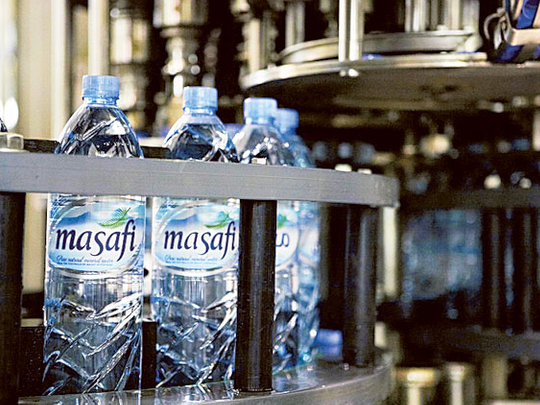
Dubai: Masafi is all set to uncap a new export game-plan through its soon-to-be commissioned bottled water plant in Oman. Investment in the facility, with its proximity to fresh water sources in the Hajar mountains, stands in the region of Dh20 million-plus.
The Oman plant is critical to Masafi’s longer term aspiration.
“It was in August last that the UAE put a ban on all exports of mineral water,” said Reginald Randall, CEO. “At the time Oman was our biggest market outside of the UAE and Masafi had the highest share in the category. It’s the reason why we decided to go ahead with committing a major investment on new capacities in Oman, and which could also be tapped for supplies to other markets.”
There was an existing plant at the site, but once Masafi stepped in, it did so by adding new machinery from Germany and raising capacity to churn out as many as 36,000 bottles an hour.
Until the ban, Masafi’s plant in Ras Al Khaimah was sending shipments to more than 50 countries. In fact, exports made up 30 per cent of the production run.
The brand, which has become synonymous with bottled water, enjoys market leader status in the UAE and Oman. Going forward, the CEO believes opportunities exist in Saudi Arabia, which could be developed into a similar scale over the next five years.
“We will always be on the lookout for greenfield investment options or through acquisitions. In the bottled water business, it’s vital that the distribution footprint be rigorously monitored given that transport distance can chip away at margins,” Randall said. “We also have an exposure in Turkey for a spring water plant and that too will be used for export markets.”
While water remains the core element, Masafi has in the recent past been expanding into other lines such as fruit juices and facial tissues.
“Essentially, lines where there is a strong connection with the brand’s values and legacy,” the CEO said.
Non-bottled water revenues make up 40 per cent of turnover and also have a significant benefit on the bottom line.
Brand association was also the reason why it decided to pull the plug on its chips line.
“Feedback from consumers suggested that us making chips was clashing with the image of the brand as such,” Randall said. “That was the reason why we made the exit last year.
“There are still options for us to add new lines, but in healthier snacks and where there are better margins. However, it won’t be in yoghurt which is too far removed from our existing categories.”











